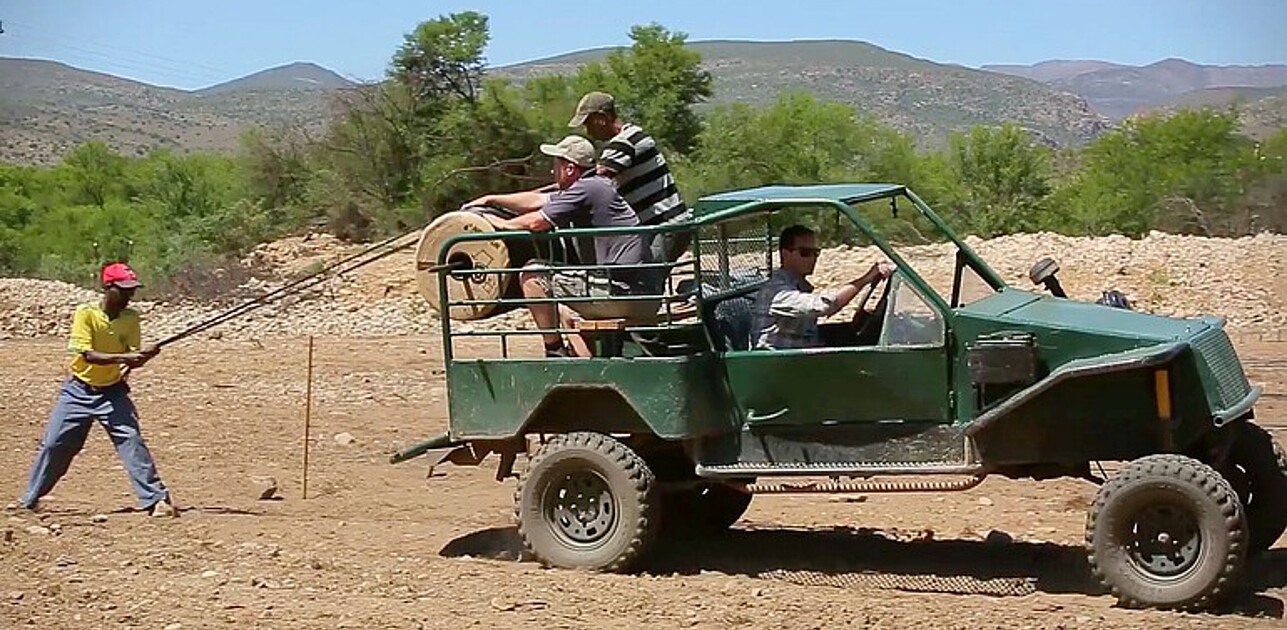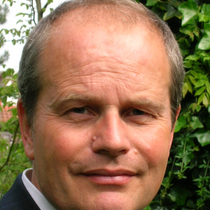

Video: Thursday, 7 July 2016
Loss of biodiversity and the degradation of ecosystems can cause unstable weather conditions, difficulties in raising traditional crops, and ultimately worldwide poverty. The good news is that ecosystem functions can be restored much quicker than climate change can be ever reversed, says ecologist Willem Ferwerda, Executive Fellow Business & Ecosystems at Rotterdam School of Management, Erasmus University (RSM). He and his team at Commonland, a landscape restoration company, have developed an approach to turn ecosystem restoration projects into a business that’s profitable to local farmers and investors, developing projects in South Africa, Spain and Australia. Ferwerda thinks the academic knowledge of a business school offers gains for the environment and can help farmers in regions affected by climate change.
Ferwerda: “Our aim at Commonland is to restore degraded landscapes and turn them into landscapes with ecological and economic value. We work with farmers, business, investors, and with authorities. We have developed a ‘4 returns framework’ that ensures return of financial capital to an area and the return of natural capital and jobs – restoring social capital to the area.”
“The first thing we do when we start working in an area is to restore the inspiration of ordinary people living there because they will do most of the work. They are the ones who have to change the way they farm and do business. We often ask them to change agricultural practices they have been familiar with for generations, so we always start by listening and talking. Only when their inspiration and a belief in future success returns can we connect them to policy makers and funding to start the process of restoring the ecosystem.”
“First we scout an area to identify the stakeholders. Who are the farmers, investors, local entrepreneurs, public services, governments and authorities? Then we zoom out and identify the opportunities for the area as a whole. For example, for the 630,000 hectare large Altiplano in Andalusia (Spain), a heavily degraded area which has been deforested for many centuries, we started the ecosystem restoration process by building trust and creating a breeding ground with the various stakeholders. Our goals were to restore the canopy, revitalise the soil and to create business activity and a better income for farmers.
To make this happen, a master plan will be co-created by all involved in the association that we’ve initiated, AlVeLal. This describes plans for regenerative agriculture and reforestation in the region. Also, it envisions restoring watersheds and creating local water reservoirs and swales in the landscape at a huge scale.
“Once we know the opportunities an area, like this can offer, we start a process to develop them. And for this we need business developers, and business schools.”
“Our projects have demonstrated that you can make money out of ecological restoration in a sustainable long-term way, but there are three challenges to overcome. First of all, it’s important for businesses to understand the economic value of eco-systems, but this thought is not yet generally embedded in economic thinking. Second, business developers must be aware that the full potential of landscape restoration, job creation and financial returns can only be optimised after at least 20 years. That’s how long our projects take, which is quite untypical for the average business developer. And finally, developers need to think in an integrated way and build partnerships with many stakeholders in the area. To do this, they need to think in a ‘holistic’ way and connect their business and administrative processes with how landscape restoration and agriculture actually work.”
“Of the many skills they can bring to ecological restoration, one of the most important is researching and teaching business development. Business school graduates are trained to find innovative business cases. Business schools also gather and disseminate knowledge about financial modelling and blended. A typical project stimulates a variety of money streams into the area, locally generated and externally funded. Managing this takes a special skill set.
“After they become operational, projects continue to grow in scale, and that’s when we need good project managers Who can work across cultures and deal with all the stakeholders, from farmers to national governments and investors. Business schools addressing those issues in their training can help to further the ecological restoration industry.”
“They should take into account that ecosystems and bio-diversity are crucial to our economy. If we lose ecological functionality – the bio-diversity of ecosystems – we lose our economic model, we will lose our economic incentives and we will not make money in the long run. We need to bring that thinking into the curriculum of a business school.
“We should also bring long-term thinking into the curriculum. Short-term thinking that’s focused on quick returns will not benefit the restoration of ecosystems nor the restoration of local economies. Future business leaders need to have a deep understanding of those two things before they can take the right decisions for coming generations.
“I really want to add these elements to business school curricula and that’s why we are looking into establishing an Academy for Business and Landscapes with Rotterdam School of Management, Erasmus University, and other partners. It’s an initiative that I hope will bring a synergetic outcome as business schools and ecosystem restoration come closer together.”


Science Communication and Media Officer

Corporate Communications & PR Manager
Rotterdam School of Management, Erasmus University (RSM) is one of Europe’s top-ranked business schools. RSM provides ground-breaking research and education furthering excellence in all aspects of management and is based in the international port city of Rotterdam – a vital nexus of business, logistics and trade. RSM’s primary focus is on developing business leaders with international careers who can become a force for positive change by carrying their innovative mindset into a sustainable future. Our first-class range of bachelor, master, MBA, PhD and executive programmes encourage them to become to become critical, creative, caring and collaborative thinkers and doers.
